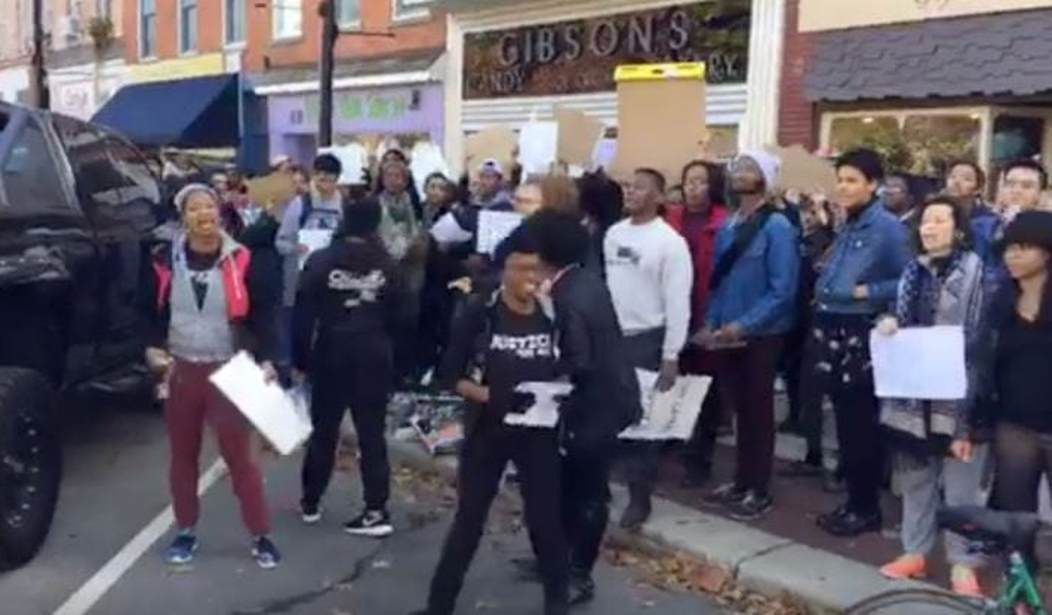Last week, Gibson’s Bakery was awarded $33 million in punitive damages, in addition to the $11 million in compensatory damages in the week prior.
The legal case Gibson’s Bakery vs. Oberlin College started when a black underage student at Oberlin College attempted to purchase a bottle of wine with a fake ID. The store clerk, Allyn Gibson, then noticed that the student was attempting to steal two bottles of wine hidden in his coat.
Gibson chased the student outside and then tackled him, with two other black friends of the student joining in a scuffle. After the physical altercation, Gibson had “several abrasions and minor injuries including what appeared to be a swollen lip, abrasions to his arms and wrists and a small cut on his neck.” The three students were arrested and later convicted.
In court proceedings, Oberlin College stated that Gibson “violently and unreasonably attacked an unarmed 19-year-old Oberlin College student.”
After the incident, protests against the bakery began with protesters chanting, “Gibson’s is racist,” and carrying signs accusing the bakery owners of white supremacy. Oberlin College actively supported these protesters, buying them pizza, using student funds to pay for gloves, and helping them hand out flyers.
Next, Oberlin College suspended its purchase of baked goods from Gibson’s for just over two months, which, according to the store, “sent a message to the community that the college believed the store was racist, and… people had stopped shopping there or went through a back door.” In addition, Dean of Students Meredith Raimondo pressured Bon Appetit, a major contractor with Oberlin, to cease business with Gibson’s.
Gibson’s Bakery then filed a defamation lawsuit against Oberlin College and the Dean of Students, with which it won $44 million, as of last week.
The battle between Gibson’s Bakery and Oberlin College represents a greater struggle between social justice hysteria and, not just classical liberalism, but also basic common sense.
However, this battle has not been completely resolved.
According to Professor William Jacobson at Cornell Law School, in an appeals process, the designated economic losses of David Gibson and Gibson Bros. should not be reduced. In contrast, the money awarded to Allyn Gibson ($3 million) and David Gibson ($4 million) from non-economic losses could be reduced due to Ohio state laws. The law firm Tucker Ellis LLP clarifies the provisions of the Ohio Revised Code that would impact the plaintiffs: “In non-catastrophic injury cases, the cap for non-economic damages is the greater of $250,000 or three times the plaintiff’s economic damages, up to a maximum of $350,000 per plaintiff and $500,000 per occurrence.”
In other words, both Allyn Gibson’s and David Gibson’s non-economic damages could be reduced from $7 million combined to $700,000.
In addition, the money assigned to punitive damages could also be under threat.
According to Tucker Ellis LLP, the Ohio Revised Code also stipulates that: “The amount of the cap depends on whether the defendant is a large or small employer. Punitive damages for large employers… are limited to two times the amount of compensatory damages.”
If the court determines that the cap of $700,000 should be applied to Allyn and David Gibson and that punitive damages should be applied to post-cap compensatory damages, the punitive damages would be reduced from $26 million, as it is now, to $1.4 million. The punitive damages for Gibson Bros. as a business entity could also be reduced from $7 million to $4.5 million under this provision.
All in all, in the worst case scenario, the $44 million total could fall to roughly $9 million. Ironically, these reforms on non-economic and punitive damages were put in place by a Republican-led legislature and Republican governor in 2005 to support businesses.
The hope of alleviating Oberlin’s losses explains why its president emailed members of the Oberlin community that “this is not the final outcome… This is, in fact, just one step along the way of what may turn out to be a lengthy and complex legal process.”
The college has not yet publicly announced that it will appeal the initial ruling, but it is not unlikely given its previous statements.
Nine million dollars is still certainly a large amount and, as Professor Jacobson already notes, “the jury held accountable an unhinged progressive activist college that lost concern for the lives of working people in its community.”
Nevertheless, a massive reduction in damages awarded could symbolically, at the very least, dampen the victory of classical liberalism and basic common sense over social justice hysteria. At the same time, such a reduction would send a sign to higher education institutions that they would have at least some legal leeway with respect to the weaponization of social justice.
And so the fight goes on.









Join the conversation as a VIP Member